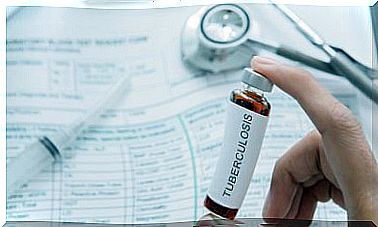Cardiotonics: What They Are And How They Work
Cardiotonic drugs are used to increase the strength of the heart’s contractions. This is done in order to be able to pump more blood requiring fewer beats. In cardiology this feature is called positive inotropism.
Besides increasing the strength of the heart, they also reduce your oxygen needs. There are several groups of drugs that have these properties and are used mainly to treat heart failure:
- Digitalis and cardiac glycosides.
- Ss-adrenergic agonists.
- Dopamine and dobutamine.
- Phosphodiesterase 3 (PDE3) inhibitors.
Digitalis and cardiac glycosides
The various species of the Digitalis plant , such as Digitalis purpurea or Digitalis lanata, allow us to extract different digitalis with cardiotonic properties. Among them we find digoxin, ouabain or strophanthin, the first being the most used.
All members of this pharmacological family exert similar actions and their differences are merely kinetic in nature. It is the most important group of cardiotonics.
Mechanism of action of cardiotonics

Positive inotropism, that is, the increase in muscle contractility characteristic of digitalis, is due to the competitive and selective inhibition capacity of the Na / K ATPase pump.
The Na / K ATPase pump is a mechanism whose function is to expel 3 sodium (Na) ions into the extracellular space and introduce 2 potassium (K) ions into the cell. With this, it is possible to maintain the ionic gradient of the cell membrane.
To regulate intracellular calcium (Ca) levels are the Na / K ATPase pumps and the Na / Ca pumps. Since the first is inhibited, the Na concentration in the cell will increase greatly and the second will be activated.
Consequently, the Ca concentration inside the cell will increase greatly. The Ca will bind the contractile proteins thus increasing the contractility of the myocardium.
Digitalis poisoning
Although this cardiotonic is one of the most used, you have to be very careful with it. It is a drug with a narrow therapeutic margin, that is, the difference between therapeutic and toxic concentrations is very small.
Therefore, this drug is for hospital use and requires monitoring. When the therapeutic dose is exceeded, the patient may suffer the characteristic symptoms of digitalis poisoning:
- Arrhythmias
- Bradycardia
- Heart attack.
- Alterations in the electrocardiogram.
Apart from problems related to the heart, other effects also occur in the body such as:
- Blurry vision.
- Nervous disorders.
- Gastrointestinal disorders.
How to treat cardiotonic poisoning?
- To treat poisoning from these cardiotonics, the cardiotonic must first be discontinued.
- Then your blood levels are determined.
- Potassium is then given to displace the drug from its site of action.
- All this in the company of a specialist.
Ss-adrenergic agonists

The ß-andrenergic agonists are drugs that can stimulate cardiac contractility, the volume of blood pumped per minute and the heart rate if they bind to ß1 receptors.
They also have a vasodilator action, thus reducing blood pressure, in addition to peripheral resistance if they are agonists of ß2 receptors, such as salbutamol or terbutaline.
Although they increase myocardial tone, they are not effective in treating heart failure in the long term. This is because in long treatments it favors the production of angiotensin, which is a hormone that promotes fluid retention, increasing blood pressure.
Also by increasing the heart rate, oxygen consumption increases which can lead to ischemia.
Dopamine and dobutamine
Dopamine and dobutamine are two drugs that are used as cardiotonics when heart failure is severe. They are orally inactive drugs, therefore they are applied in intravenous infusion at the hospital level.
This measure is important since it can cause tachyphylaxis (decreased response to a drug), at 72 hours. However, it is produced less frequently by dobutamide. The characteristics of these two drugs are as follows:
Dopamine
- Dopamine is an agonist at D1 and D2 receptors, as well as at ß and α1 agonist receptors.
- It is also capable of releasing norepinephrine as the dose increases.
- It is useful in severe heart failure associated with pulmonary congestion.
Dobutamine
- Dobutamine could be included in the previous classification, since it preferentially stimulates ß1, and to a lesser extent ß2 and α1.
- It is used in severe heart failure associated with ischemic heart disease.
None of these cardiotonics are used for chronic treatment. In addition, they can trigger adverse effects such as:
- Sickness.
- Vomiting
- Headaches
- Arrhythmias
PDE3 inhibitors

PDE3 inhibitors are a group that work by selectively inhibiting the phosphodiesterase III enzyme in the heart, such as enoximone or milrinone.
Phosphodiesterase III is responsible for degrading cAMP. Therefore, if it is inhibited, they will increase the levels of cAMP and consequently:
- Increases myocardial contractility.
- Increases the volume of blood pumped per minute.
- Reduces end-diastolic and pulmonary pressures.
Its chronic use increases arrhythmias and can cause death. Therefore, they are indicated in the acute phase of some types of severe heart failure that does not respond to other treatments.









